How AI will change B2B websites and buyer journeys
By: Sourov De
February 19, 2025 | Reading Time: 5 mins
AI has taken the world by storm. Global accounting firm, PwC, projects that “AI could contribute up to $15.7 trillion to the global economy in 2030, more than the current output of China and India combined”. Similar to how the internet changed the way we do everything, AI will have the same enormous impact.
We’re all familiar with ChatGPT. What we’ll be seeing in the near future are brands that have their own ChatGPT-like experiences on their websites. Instead of clicking on menus and links on a website to find what you’re looking for, you’ll be able to have a natural language conversation.
Imagine you have a leaking faucet at your home. There are a couple of ways you can solve the problem. You can search through YouTube videos, Reddit threads, or blogs to find a solution. Or, you can call a plumber or talk to an experienced salesperson at a hardware store. Talking to an expert is a much more customized and simpler experience. It gets you to the right solution faster. Soon, websites are going to be AI-enabled, allowing you to explain an issue you’re experiencing and get responses from an AI tool as if you are engaging with an industry expert.
AI tools that guide the B2B Buyer Journey: Geotab Connect
B2B sales cycles tend to be long and complex. A person at a company looking to buy something sophisticated like a software solution for their business will have many questions and customization requirements in their buyer journey. The tricky part is that they want their complex questions answered but also don’t really want to talk to a sales rep at your company right away.
A research study revealed that 70% of the B2B buying process is completed before any initial sales interaction. Statistics like this show us that B2B buyers prefer to heavily research things on their own before they talk to a sales rep. Let’s look at how AI can guide this journey with natural language conversations.
Example: Geotab Connect
For example, Geotab, a transportation solutions technology company, developed an AI-enabled digital assistant to guide the sales process for their annual conference sponsorships, Geotab Connect. On the landing page for the sponsorship packages, you’ll see numerous tiered options and it may be difficult to decide which one is right for you.
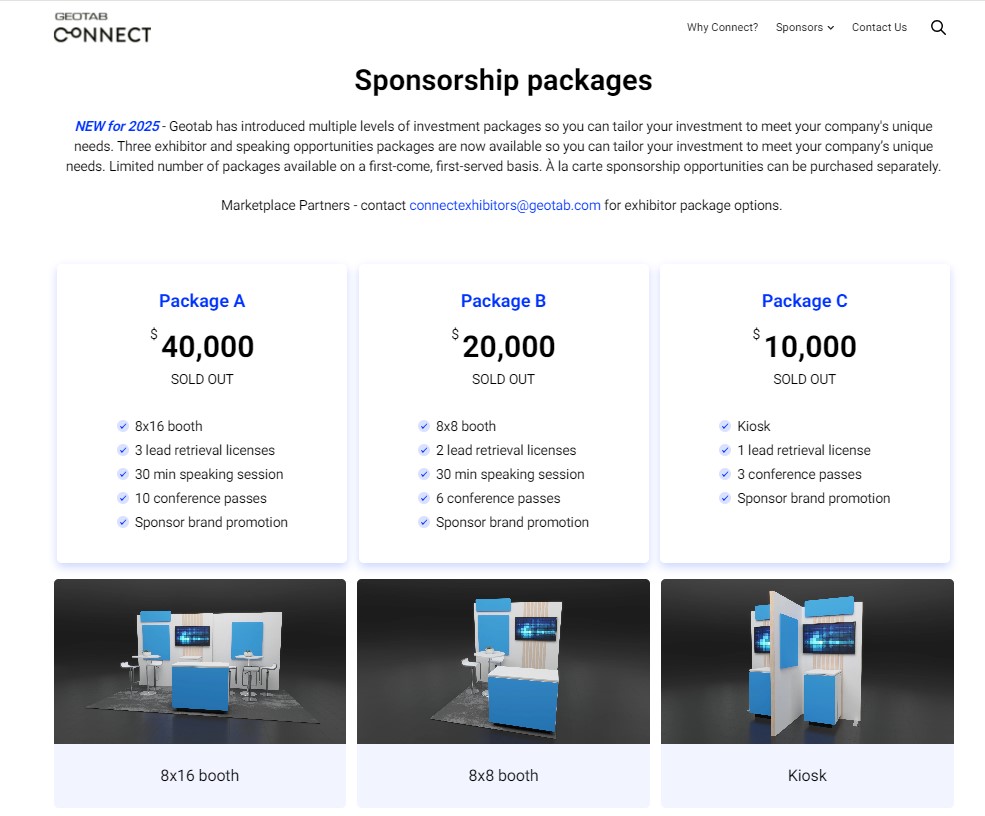
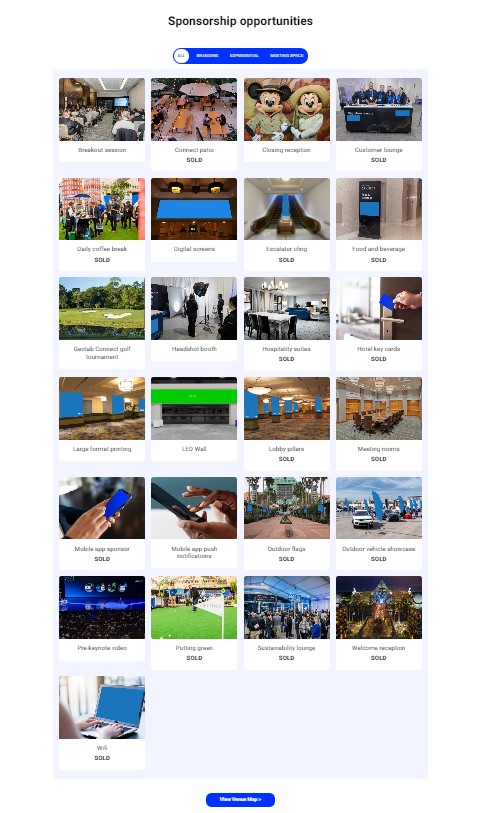
With so many options to choose from, it would be helpful to talk to someone. Geotab Connect’s AI-enabled Digital Assistant can help you determine which sponsorship package is right for you by asking questions like what your budget and objectives are. In the example below I intentionally responded with short form answers like “$20K” and used different terminology than it uses. For example, the AI tool asked if brand visibility is important, and I said “brand recognition” is important. Regardless, it’s high intelligence was able to assist me and understood the nuances of language.
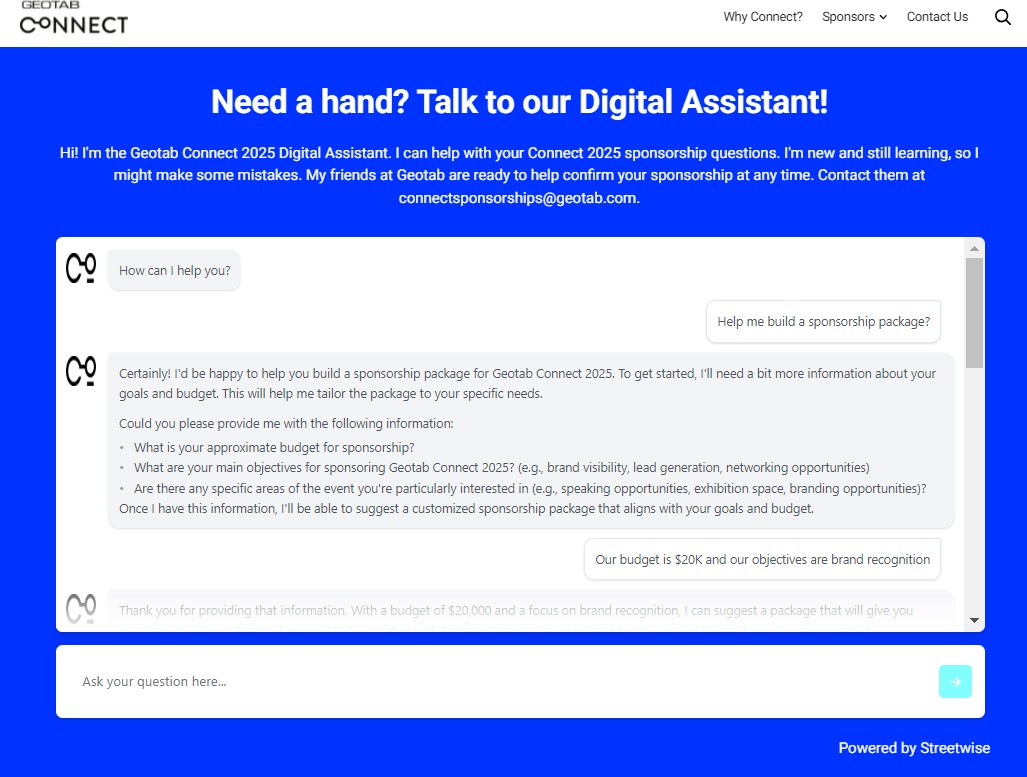
You can see the AI-enabled Digital Assistant is providing sponsorship package options for my budget and objectives. It also mirrors me to help build rapport by responding using the language that I used in my response. It even provides imagery of what a booth could look like in its responses.
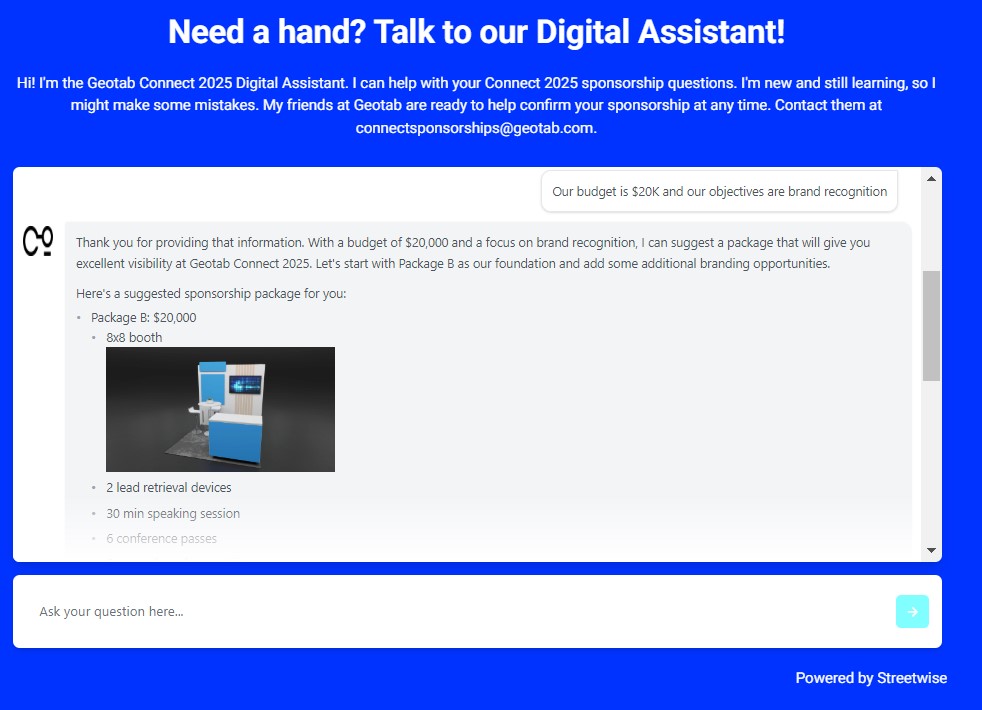
It’s so much more than a chatbot
The experience above provides a different solution than a chatbot.
- Most chatbots are based on a programmed flowchart of answers. It requires creating a decision tree, writing copy, and manually setting up this flowchart logic. To set up a chatbot you’ll need to anticipate the questions a user may ask and write out answers.
- With an AI digital assistant tool, you don’t have to pre-program responses. You train the AI with the slide decks, web pages, Word docs that you want the AI tool to pull information from. After that, you’ll establish guardrails in the AI tool so that the tool doesn’t give rogue misinformation.
An AI digital assistant emulates the experience you’d get from hiring a great sponsorship package salesperson. If you were that salesperson’s manager, you’d give them the info about the sponsorship packages and then it’s up to that salesperson to process the information and handle sales calls from there. You wouldn’t tell that salesperson ‘exactly’ what to say to an interested sponsor. You’d give them suggestions on how to handle a sales conversation and would avoid over-scripting them.
In short, chatbots are like a scripted salesperson, where the conversation may hit a dead end, or it may feel unnatural. There may even be a certain things you do not discuss at all because the answers have not been written out. AI tools are like like a great naturally talented salesperson with loads of context and experience. They know their stuff and will be natural in the conversation with a customer.
Example: Geotab Connect
Geotab’s AI Digital Assistant is goes beyond a chatbot experience by asking probing questions. For example, the AI tool asks “How important is the networking aspect?”. The AI Digital Assistant is trying to anticipate my needs and give me helpful suggestions. The conversation is not bound by pre-set paths like a traditional chatbot.
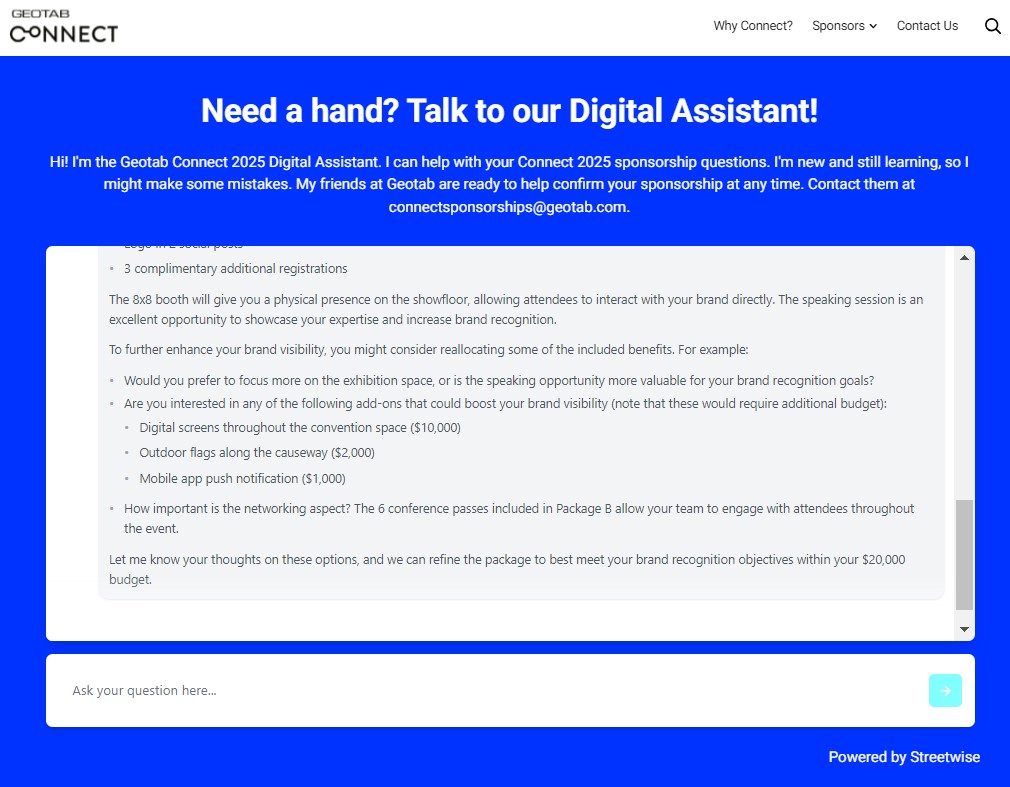
It’s the future of B2B websites and buyer journeys
In 2025, we’re going to see more AI-enabled tools like the one featured above, especially for B2B buyer journeys. An AI tool that helps a B2B buyer through their buying process without having them scroll, hunt, and click around a website to find what they’re looking for and saves them the hassle of setting a time to chat with a sales rep is a powerful weapon available to B2B companies.




